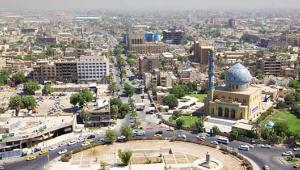By Judith Ugwumadu | 13 January 2015
Iraq is faced with the ‘double shock’ of declining oil prices and conflict, the International Monetary Fund said, as it urged the country to build up its resilience through better public financial management practices.
The ISIS insurgency is heavily affecting Iraq’s non-oil economy through the destruction of infrastructure and assets, trade distributions, electricity and investor confidence, the IMF said. But the drop in world oil prices has added to the tensions caused by the militant group and is complicating efforts to deal with it.
According to the fund, oil accounts for more than 90% of Iraqi’s total government revenues, making the country highly vulnerable to oil price volatility.
Tumbling oil prices had already reduced government revenues, the IMF said, and in turn has dragged down the economy through lower public spending, while security and humanitarian expenditure due to the conflict continue to increase.
The IMF predicted this was likely to have pushed the Iraq government deficit to 5% of gross domestic product last year.
Masood Ahmed, director of the IMF’s Middle East and Central Asia Department, said hard choices needed to be made and he questioned how policymakers would react to the difficult situation.
Iraq needed to look beyond the current emergency and work towards addressing three main areas to increase the ability of the economy to handle future crises, he said.
‘Iraq would benefit from a strengthened capacity to manage oil resources through better [PFM] practices, and continue building up fiscal buffers that would allow the government to implement anti-cyclical policies when needed,’ Ahmed suggested.
‘[Also], the country would be advised to push ahead with the transition to a market-based economic system. The goal is to build a lively, diversified economy which does not depend so heavily on government spending and, ultimately, on oil money.’
He also stated that the country could look into how its huge oil resources are redistributed among the population, and how fiscal decentralisation institutions and practices can improve fairness and sense of belonging among all citizens.
‘Faced with the “double” shock of lower and falling oil prices and the ISIS insurgency, pushing through such a transformative reform agenda becomes even more urgent,’ he said.













